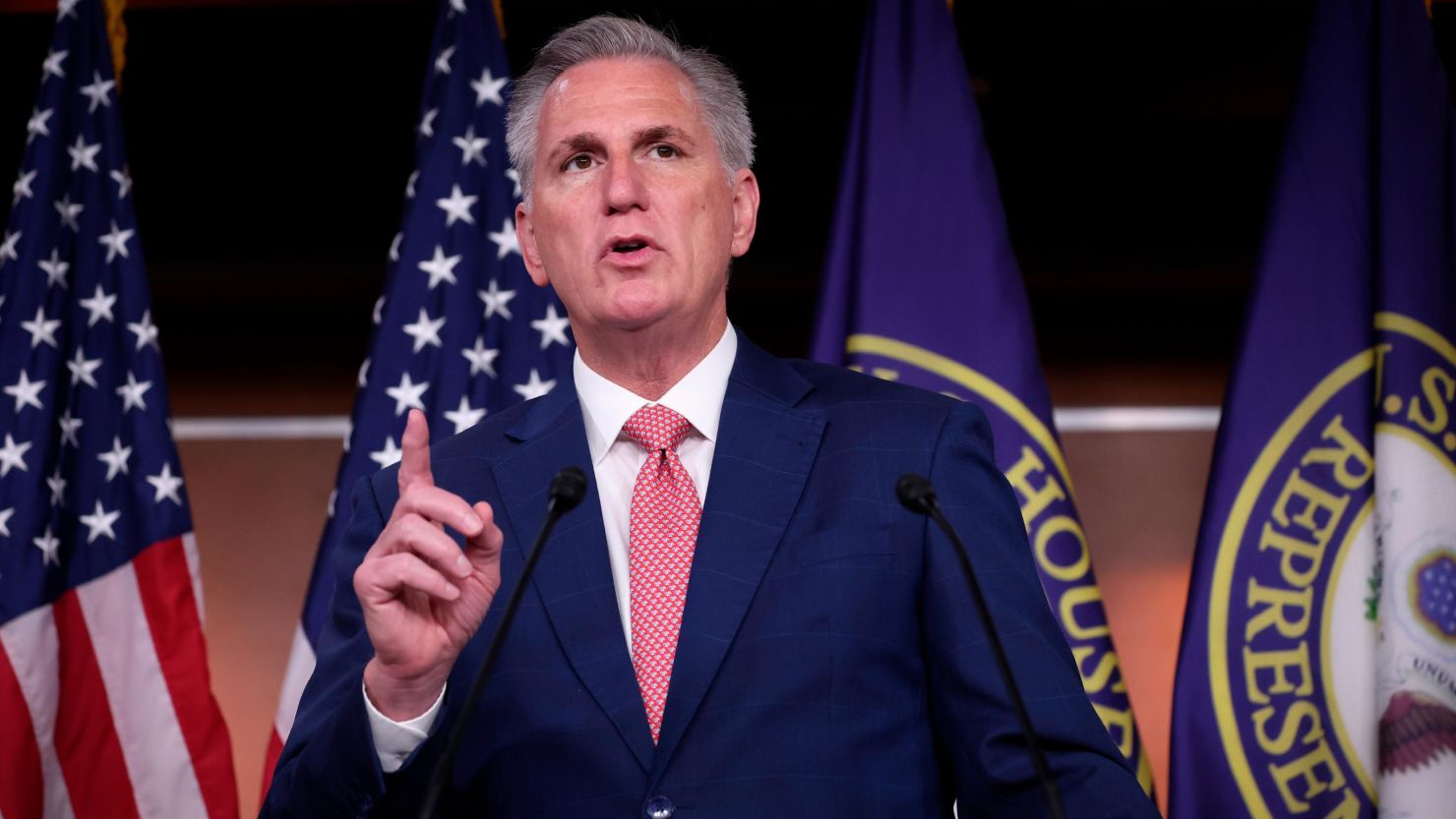When Newt Gingrich released the famed “Contract with America” in September 1994, it was chock-full of very big ideas.
Welfare reform. Tort reform. Tax cuts. A balanced budget amendment.
Gingrich’s plan envisioned an entirely new relationship between the government and the people it governed, a fundamental rethinking of the way in which people interacted (and didn’t) with the federal bureaucracy.
On Friday, House Republican leader Kevin McCarthy officially unveiled the “Commitment to America” – a not-at-all subtle attempt to link his bid for the majority to what Gingrich built three decades ago.
Except that a cursory examination of what McCarthy is actually proposing feels decidedly smaller than what Gingrich put on the table.
The plan is light on policy details. At an event in Pennsylvania announcing the framework, McCarthy said the first bill Republicans would take up if they win control of the House would be to cut funding for more IRS employees that is part of the Inflation Reduction Act President Joe Biden signed into law.
Which, I mean, sure, that is something that will make the Republican base happy. But compared to reforming the country’s welfare system? Feels sort of like small potatoes, right?
Same goes for another plank of McCarthy’s plan: Ensuring that only women compete in women’s sports. A nice piece of red meat to throw to the base, but not exactly an overhaul of the way government interacts with the public.
(Sidebar: For a party that believes, ostensibly, that government should stay out of people’s lives, the decision to focus on regulating who can compete in sports is an interesting one.)
The “go small” approach is all over the “Commitment to America.” And it is reflective of a few factors within the current GOP.
1) To get the entire party, which runs from Marjorie Taylor Greene to a handful of remaining moderates, behind anything is an ordeal. That necessarily means the proposals are narrower in scope than McCarthy would likely prefer.
2) Donald Trump’s takeover of the GOP has meant less focus on big policy prescriptions and more emphasis on small-bore ideas that are often responses to things that Democrats are either doing or proposing to do.
The Point: The House majority won’t be won or lost based on the “Commitment to America.” Which is how McCarthy likely wants it. Rolling out the platform protects him and his party from attacks that they are without ideas, while also not leaving them open to attacks on big proposals with equally big risks attached.


